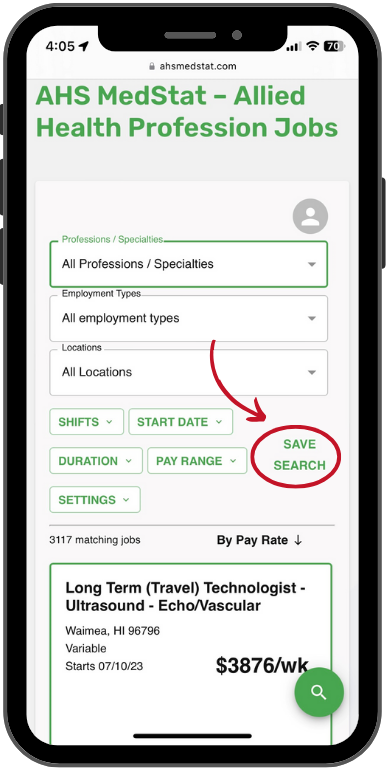Nurses in abundance
In this third and final installment in the series, I will be discussing “The International Nurse”. With all due respect to our friends to the north (Canada) and other parts of the world, this discussion will focus primarily on nurses from the Philippines. They are – by far – the most abundant resource pool of nurses in any country in the world.
The Philippines population is roughly 8% of the population of India – yet they take (and pass) the US NCLEX test more than twice as often as nurses from India. Based on population, the Philippines NCLEX test/pass rate is 25 times higher than India – which is the next most abundant resource outside of North America.
Clearly, the Philippines is turning out RN’s at a rate which significantly exceeds their internal demand. These nurses are destined for nursing jobs abroad. In spite of a devalued dollar – and a challenged international political image – the USA remains the destination of choice for nurses from the Philippines.
Hard Working Folks
The standing joke we have with our nurses from the Philippines is that a Filipina nurse who works 40 hours per week is a part timer. Like the immigrants who built this country, Filipinos know and respect the value of hard work. The Philippines is the top exporter of labor in the world.
The immigrant mindset is most typically one of gratitude and an appreciation for opportunity. They are a loyal and hard-working people once they are employed with you.
The Challenges
One of the challenges you may face in your quest to employ a hard working international nurse is that they are heavily recruited. Most are young and lack life experience – this recipe will sometimes produce a quagmire situation. I’ve known a number of good people in these past 10 years of recruiting abroad who have been mistreated by their recruiters and agents – many of them are forced to pay fees of up to $10,000 US Dollars – then they are put on hold and given the run around. They almost always have borrowed the money from family abroad or (God forbid) the local 5-6 man (this is a Filipino term for a loan shark – if he doesn’t get paid, there will be consequences). Most often (strangely) they are being exploited by either local Philippines agents of Filipinos who now live in America.
Another challenge is that these nurses – while tracking for the USA – ultimately have poor job prospects at home. Most new graduates must work as volunteers in order to gain experience. There is almost a cast system in the Philippines nursing infrastructure. Their ability to work (or not work) is based on the following:
- Age – if you’re a new graduate over 35 years old, you will struggle to get a paid job in The Philippines.
- Gender – Men are preferred – especially in Emergency or Critical areas.
- Board Pass Score – passing is 75% – the “top notchers” (top 1%) are usually 84-85%. These folks are guaranteed jobs.
- Complexion – lighter complexion is preferred. Those with significant acne will struggle to become employed.
- Religion – 80% of the population is Catholic – this is usually preferred.
This may seem unbelievable to an average American – but I regularly receive resumes from the Philippines which contain the following unsolicited information:
- Weight
- Religion
- Height
- Type of complexion (examples are “light” and “clear”)
- Marital status and number of children.
- Pictures always accompany resumes
If those questions were brought up in a US job interview – the employer would likely be answering to the EEOC.
Greetings from Dubai
Most of the nurses – once they start processing for the USA – are still being heavily recruited to go to the UAE, Saudi Arabia or the UK. These nurses have no other means of supporting themselves locally due to the significant nurse surplus in the Philippines. Often, they struggle to find the courage to discuss this with their US employer before they move forward.
I have gotten more than a few emails from nurses (who had been hard to reach for a while) which opened with the greeting,
“Dear Sir Matt: Greetings from Dubai!”
Because they are so strapped for cash – they take an assignment abroad before talking to their US employer. This is also due to the fact that the timelines for US immigration FAR EXCEED the timelines in the rest of the industrialized world. Fortunately, the short term Saudi or Dubai assignment usually has little impact on their US processing.
All Things Considered
Employing nurses from the Philippines is usually a very positive experience. I have experienced an occasional problem employee – but they are few and far between and are most often ostracized from the core groups due to their disrespectful actions.
Filipino nurses have been a great pleasure to work with. They are hard working, dedicated, very well trained extremely loyal – and very family and community oriented.
Lets just hope that we in the USA can get out of our own way and open immigration back up to a level which may help us head off disaster in Health Care.
Time For Some Action
If you’re a nurse living in the USA, please click on the following link: http://capwiz.com/sjhs/issues/alert/?alertid=11498866 and tell your legislator that it is time to do something about healthcare immigration reform. If you plan on accessing healthcare anytime around 2020, your life could depend on it.
For more information, email [email protected] or call 877.367.8770 and ask for the Foreign Recruitment Department.

